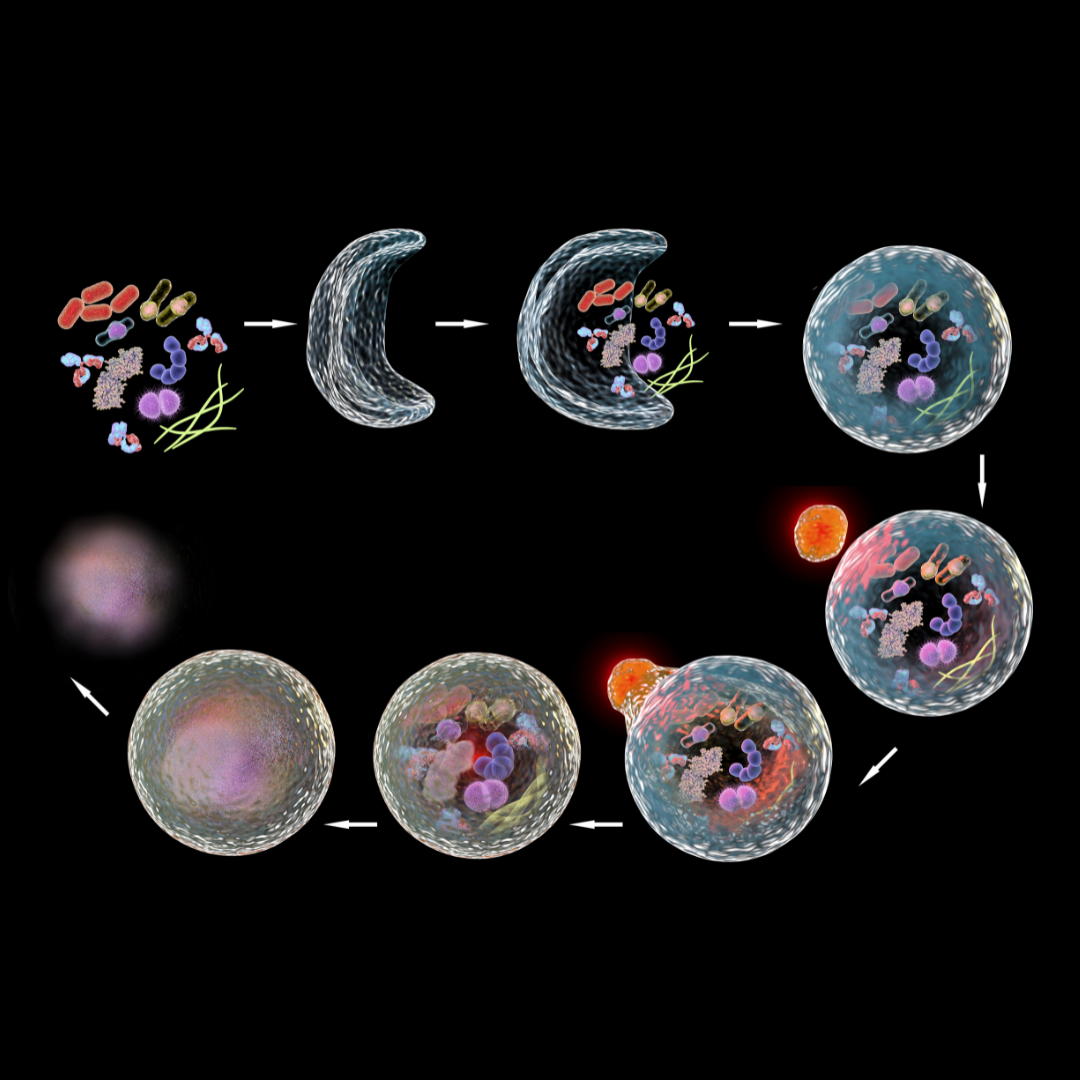




Primeadine® GF (Gluten-Free) Whole-Food Spermidine Supplement
HEALTHY AGING | CELL HEALTH | RADIANCE
A gluten-free, whole-food spermidine supplement sourced from the longevity islands of Okinawa, Japan. Activates autophagy — the body’s cell renewal process — to promote healthy aging, radiance, and overall wellbeing.
OR subscribe and save 25% on every order.
Increase your cart total to over $100 for free shipping on your order!
Description
Primeadine® GF is a food-derived spermidine supplement from Okinawa, Japan’s “longevity islands.” Its unique blend combines spermidine-rich, iodine-free chlorella, nobiletin from Shikuwasa lime peel, and turmeric. Together, they activate autophagy – your body’s natural cell renewal system – mimicking the benefits of fasting and addressing the root causes of aging. Think Marie Kondo for your cells.
Primeadine GF supports:
- Healthy aging - reduces inflammation, renews cells, and protects DNA
- Radiance - stronger hair, smoother skin, healthier nails
- Energy & focus - improved vitality, memory, and cognition
- Rest & balance - deeper sleep, circadian rhythm support, and gut–hormone balance
Ingredients
Primeadine® GF contains Okinawan Chlorella (whole, broken cell wall, iodine-free*), Shikuwasa Citrus Peel, and Turmeric, providing naturally-occurring:
- Spermidine (1.2mg)
- Lutein (2.57mg) – has been shown to reduce glare and protect the eye from sun damage
- Nobiletin (0.3mg)
- Vitamins and Minerals: Vitamin D2 (7mcg), Vitamin K (6mcg), Folate (25mcg), Vitamin B12 (0.09mcg), Biotin (3mcg), Pantothenic Acid (0.04mg), and Iron (0.3mg).
Other Ingredients: Tricalcium Phosphate.
*Our strain of chlorella will not affect the thyroid negatively because unlike almost all other strains of chlorella, ours does not contain any iodine.
How to Use
Dosage: 2 tablets per day, with water at your first or last meal. You may also grind tablets with a pestle and mortar or pill crusher and add to smoothies.
First Time Use: On your first day, take 1 tablet and if well-tolerated, continue with the recommended dose.
Who's It For
- Those seeking to improve their longevity, healthspan, and overall wellness. Like collagen, spermidine levels begin to deplete from age 26.
- Those interested in experiencing the benefits of fasting without dietary restrictions.
- May be suitable for younger individuals who have inflammatory skin conditions, gut health issues, viral overload, or have recently take antibiotics.
- Vegetarians and vegan women who still have their monthly cycles are especially prone to low iron and lower levels of vitamin B12, so Primeadine GF may be helpful in these situations.
Contraindications
- The formula contains natural Vitamin K2, a coagulating agent, so avoid it with blood thinners.
- If you have hemochromatosis, consult your healthcare provider due to the iron content.
- Do not take if allergic to chlorella, citrus, or turmeric. Discontinue use if you experience any negative reactions.
Free From
- Additives & Processing Agents: Fillers, Flow Agents, Added Flavors
- Allergens & Dietary Concerns: Wheat, Gluten, GMOs, Soy, Lactose, Sugar, PUFAs (polyunsaturated fatty acids), Iodine (unlike most other strains of chlorella, ours is completely iodine-free so will not negatively affect the thyroid)
- Contaminants: Heavy Metals, Pesticides and Herbicides (including glyphosate), Mycotoxins
Primeadine® GF is made in an FDA-registered facility, in Okinawa, Japan, that does NOT handle wheat, shellfish, dairy, or nuts.
To maintain product purity, we limit the use of binders, which may cause natural splitting and color variation between batches. This variation reflects the purity and cleanliness of our products and is no cause for concern.
Quality & Testing
- Good Manufacturing Practices (GMPs)
- ISO2200 standard, the highest in food quality control
- Sourced in Japan and Made in the USA in FDA-certified facilities
- Rigorous third party testing in Japan and the USA
- Thoroughly tested for heavy metal, contaminant, and microbiological analysis by third party, FDA-registered, ISO-certified laboratories

This product is rated 4.7 of 5.0 stars.
It has received 42 reviews.
Activate Your New Prime of Life...
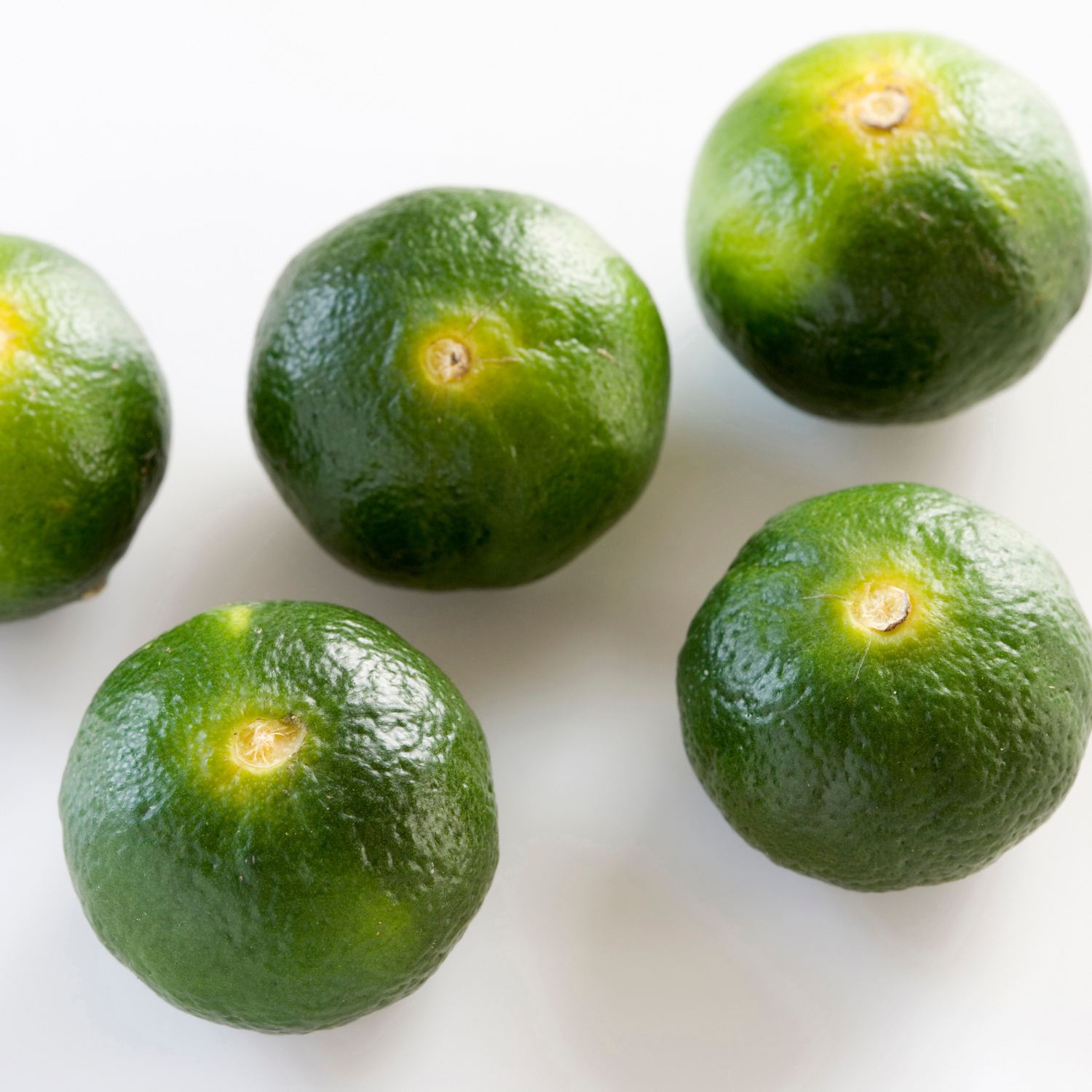
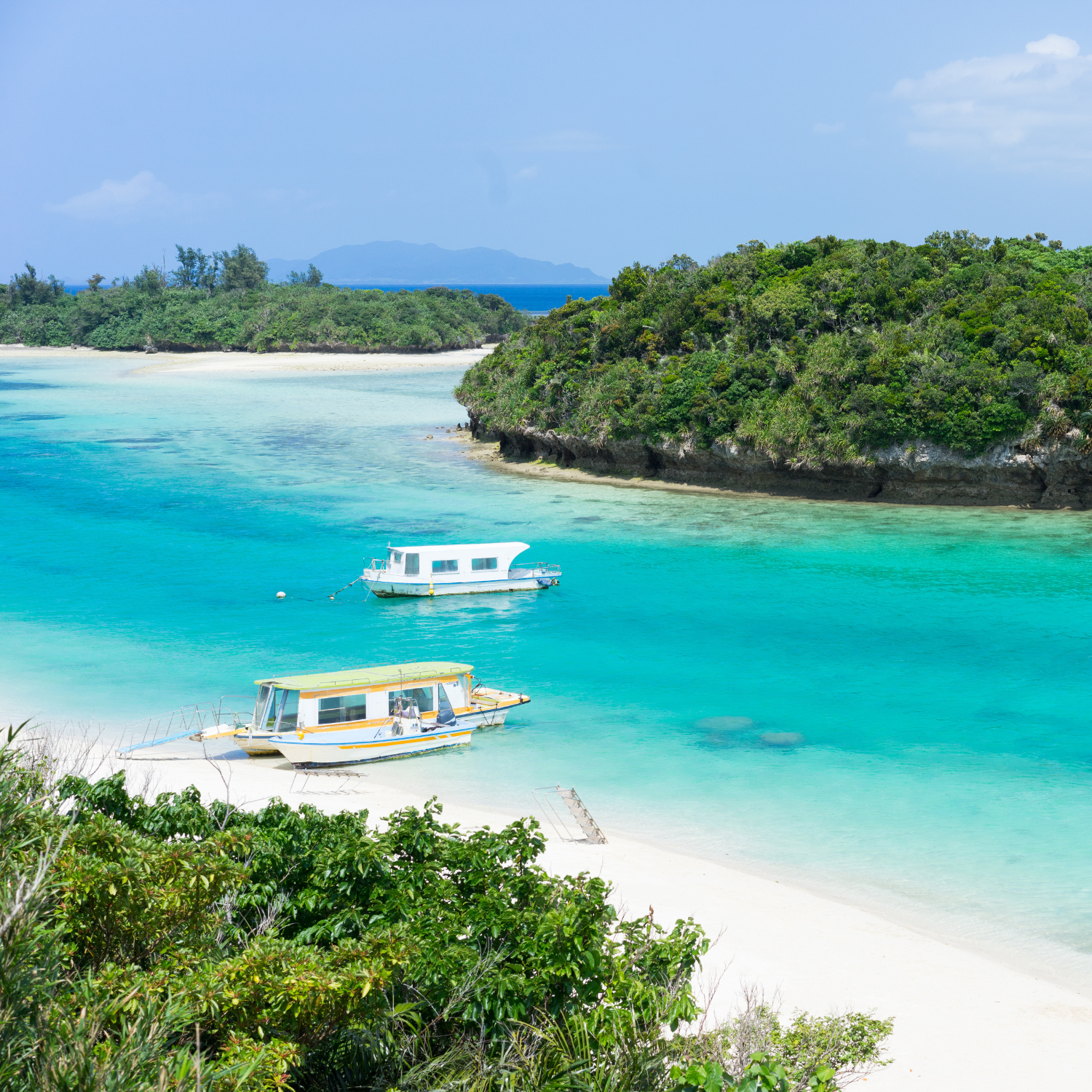
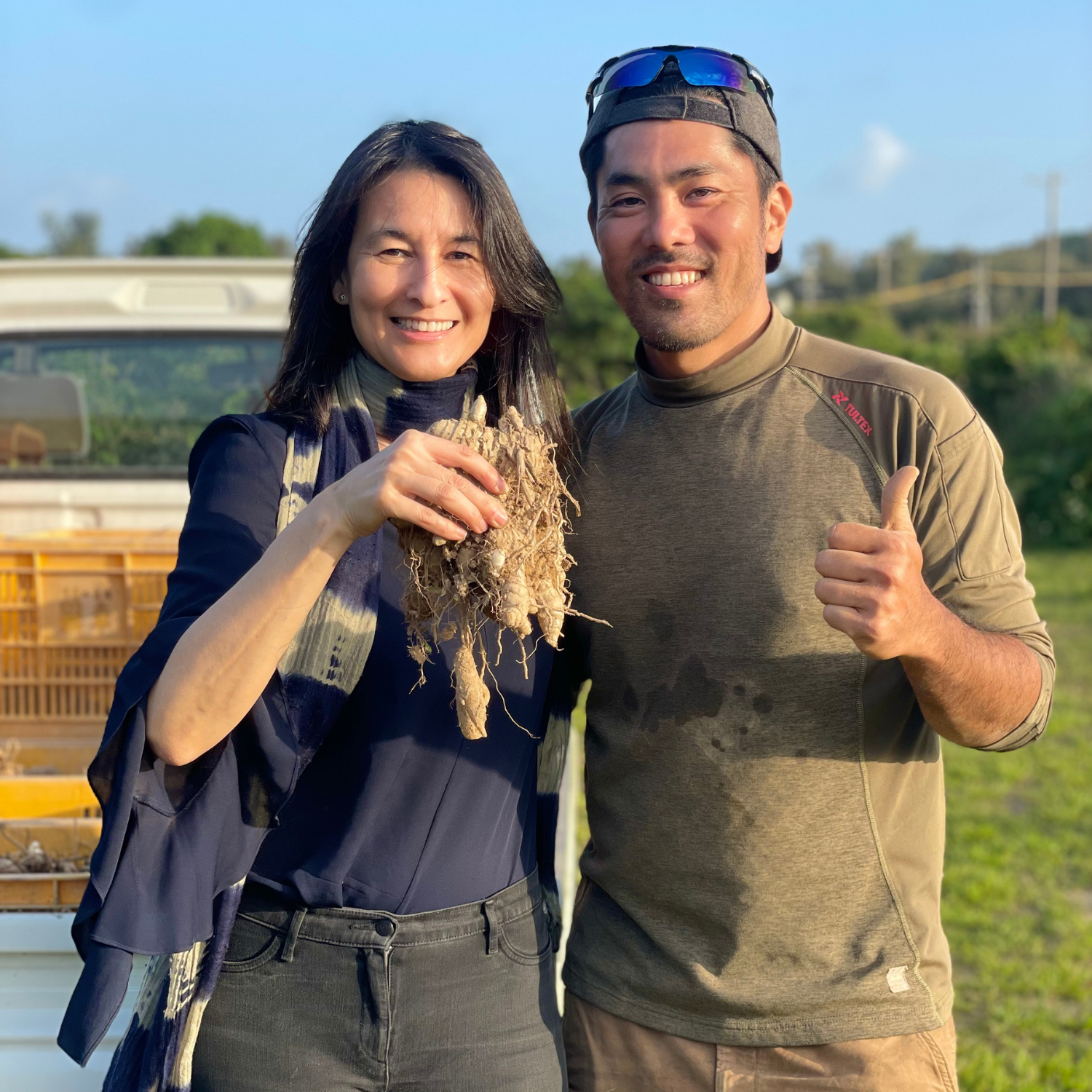
Made with chlorella, turmeric, and lime peel from Okinawa, Primeadine GF is fully food-derived, pesticide-free, non-GMO, and grown by local farmers.
Sourced in Okinawa, Japan, Primeadine GF meets ISO22000 standards and is third-party tested in Japan and the USA for purity and potency.
Food-derived spermidine is better absorbed thanks to natural co-factors and gut support. Lime peel adds nobiletin to boost autophagy, while turmeric provides anti-inflammatory benefits.
Recommended by experts

@drolivialesslar
Celebrity Anti-Aging Doctor
Primeadine is an exceptional quality spermidine that I use in many protocols, especially when I am trying to induce autophagy. These include such diverse protocols as those for tinnitus, cancer, post-viral syndromes, 'autoimmunity', and graying hair! I am especially pleased to have a gluten-free version to offer patients.

@nadineartemisofficial
Beauty Philosophist, Author & Founder of Living Libations
My renegade beauty secret for deeper sleep, stronger nails, longer lashes, fuller hair, smoother skin, and fading freckles.

@timbiohacker
Europe's Leading Biohacker & Founder of the Health Optimisation Summit
Primeadine by Oxford Healthspan is my go-to spermidine supplement. Made with rigorously tested Japan-sourced ingredients and a unique prebiotic to boost gut production, it’s unmatched in quality and effectiveness and doesn't have the nasty additional bulking agents like other brands.

@kaufmannantiaging
"Best in Medicine" Longevity Doctor & Author of The Kaufmann Protocol
There is no question that spermidine is a crucial component to any longevity program. Thankfully, Oxford Healthspan offers an unparalleled product line. The quality is unprecedented, derived from naturally-sourced materials and manufactured in Japan. As a result, the products contain not only spermidine, but related polyamines which provide additional health benefits. As a result, I highly recommend this product line to all of my patients.

@theagingwellpodcast
Host, Aging Well Podcast and Prof of Exercise Science at Western Oregon University in Portland
I started Primeadine last night. Impatient as I am, I started at 3 capsules. Despite disrupted sleep, I had my best recorded REM sleep (1:35, 24%) and good restorative sleep. I am impressed! My “Biocharge” on my Helio Strap has been low. I was still “low” but significantly improved considering I went to bed at a 5 (drained)… [it] is the highest I have been in a while.

@carolvorders
British TV personality & Biohacker
I’m nearly 62, and I started looking into lowering my biological age. Primeadine supplements really help with, fundamentally, what’s called autophagy, which is getting rid of rubbish in your cells and using it for energy and for cell renewal and for your brain as well. Lots of you ask about what I take and this is a key essential.

@dr.stephanie.estima
Women’s Health Expert & Author of “The Betty Body”
My hair was starting to go from gray back to […] dark brown. It was gray, and now it’s back to its original color. When I think about spermidine as a whole, the way I am viewing it is as a way to reduce systemic inflammation.
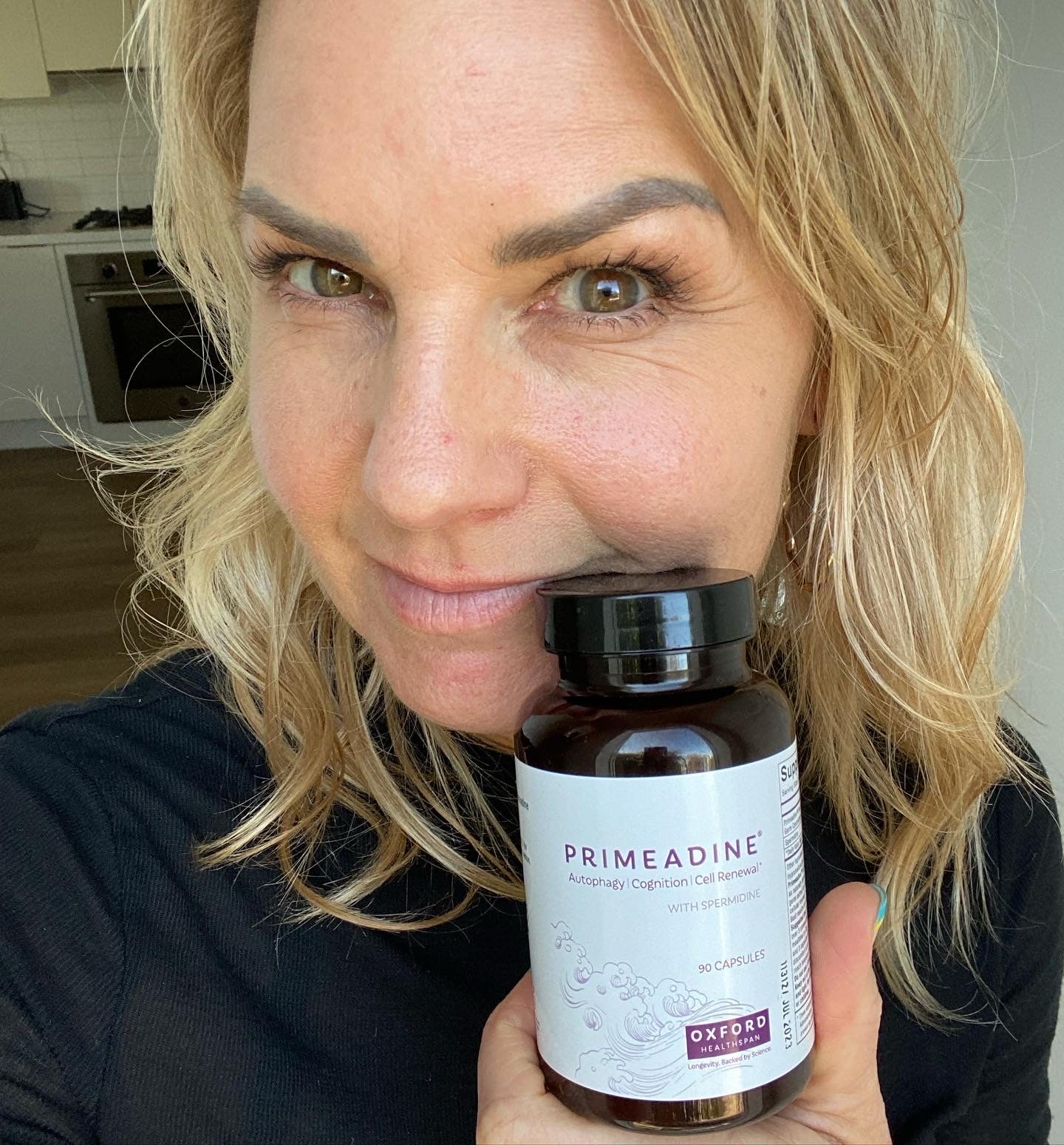
@hackmyage
Gerontologist, Biohacker & Sports Nutrition Coach
I’ve been taking Primeadine spermidine on and off for about 3 years. Every time I go on it, my sleep or recovery scores on my tracking devices go up. And when I go off of it, after several weeks they start to drop.

@ollisovijarvi
Pioneer of Holistic & Preventive Medicine in Finland & Medical Doctor
My wife has been taking it for six months and I think she looks younger and her hair growth has come back after pregnancy, and nails, and all kinds of things that are a reflection of good vitality.
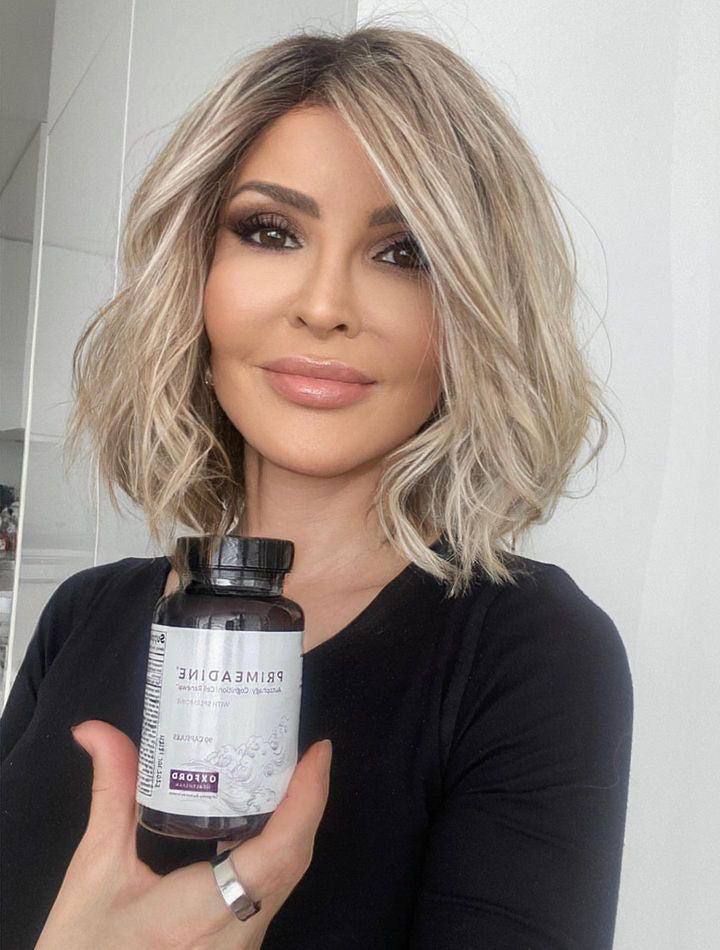
@magdalenas_secrets
Biohacker & Anti-Aging Entrepreneur
I’ve noticed (via the Oura ring app) my deep and REM sleep improved enormously! My nails are so firm and my skin is even more beautiful and glowing. If you want to improve your health and rejuvenate your body, I suggest following an anti-aging protocol with Primeadine.

@lukestorey
Writer, Meditation & Metaphysics Teacher & Lifestyle Design Expert
The best spermidine supplement on the market.

@nathalieniddam
Certified Holistic Health Coach & Biohacker
Primeadine upregulates autophagy and mitophagy, helps the immune system to rejuvenate plus it protects DNA and supports deep sleep, hair skin, and nails. It’s a staple in my supplement stack!
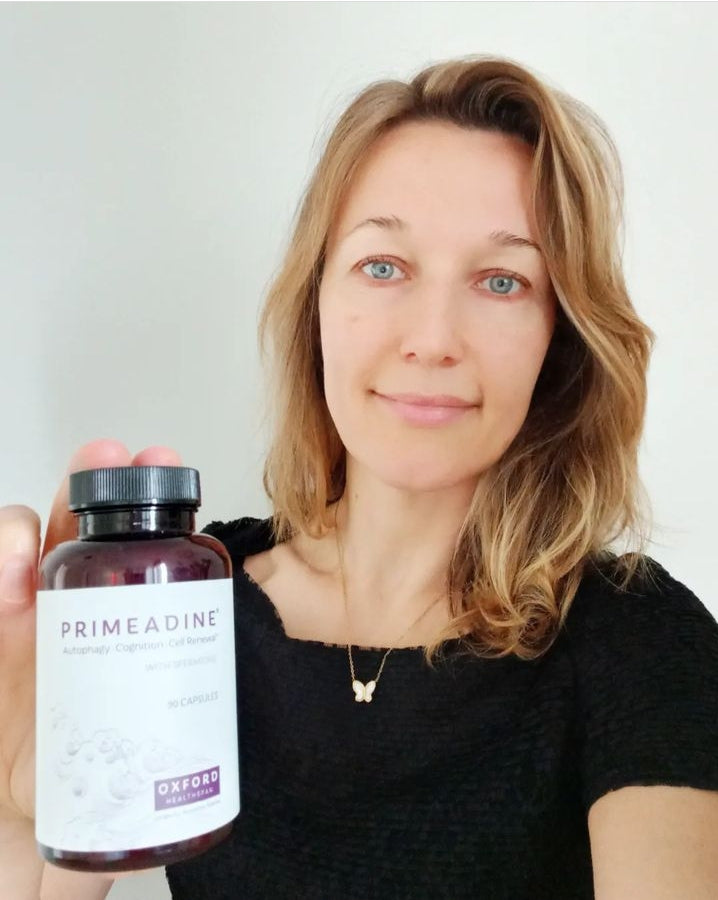
@anetagrabiec_wellness
Psychologist, Nutritional Therapist & Hormonal Wellbeing Expert
What I noticed is: incredibly thick and fast-growing eyelashes, hair, and nails; improved skin texture; constant energy levels; great digestion; stronger immunity; deep, restful sleep; balanced hormones and regular menstruation.

@silverliberation
Pro-Aging Influencer
One of my non-negotiable supplements for better skin, hair, lash growth, and autophagy. And best of all - improved sleep.
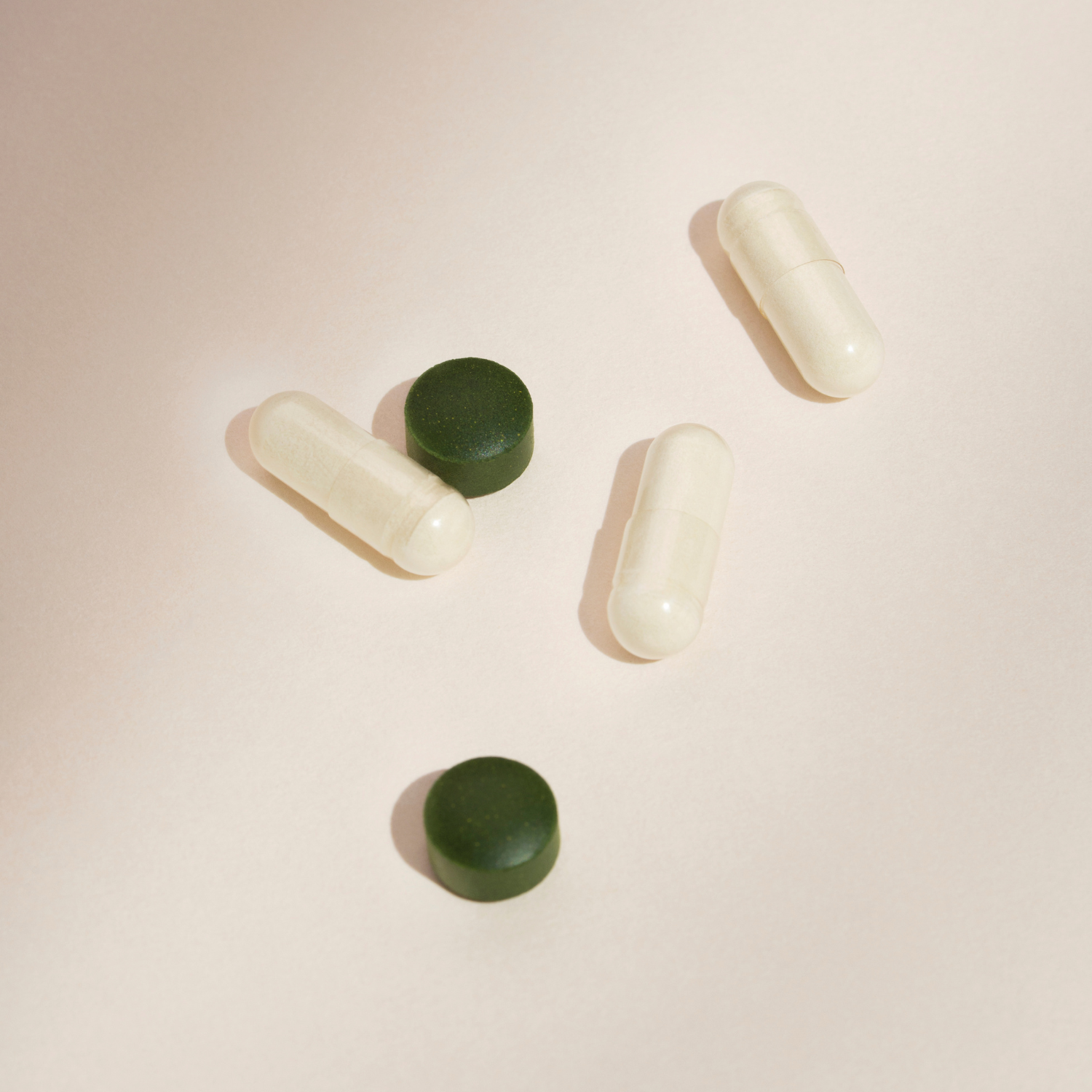
What is Spermidine?
Primeadine’s key ingredient, whole-food spermidine, is a natural compound shown to support healthy aging. In youth, most is made by the body and gut, but levels decline with age – making supplementation increasingly important.
Learn moreLearn More on Our Blog

At Oxford Healthspan, our mission has always been clear: to help people live more vibrantly at every stage of life. That is why we are delighted to be sponsoring and attending the Smart Ageing Summ...

As part of Grammy Week in Los Angeles, Oxford Healthspan offered a preview of our new Primeadine® GF Powder on February 1, through a custom Primeadine Longevity Shot, served during an invite-only c...
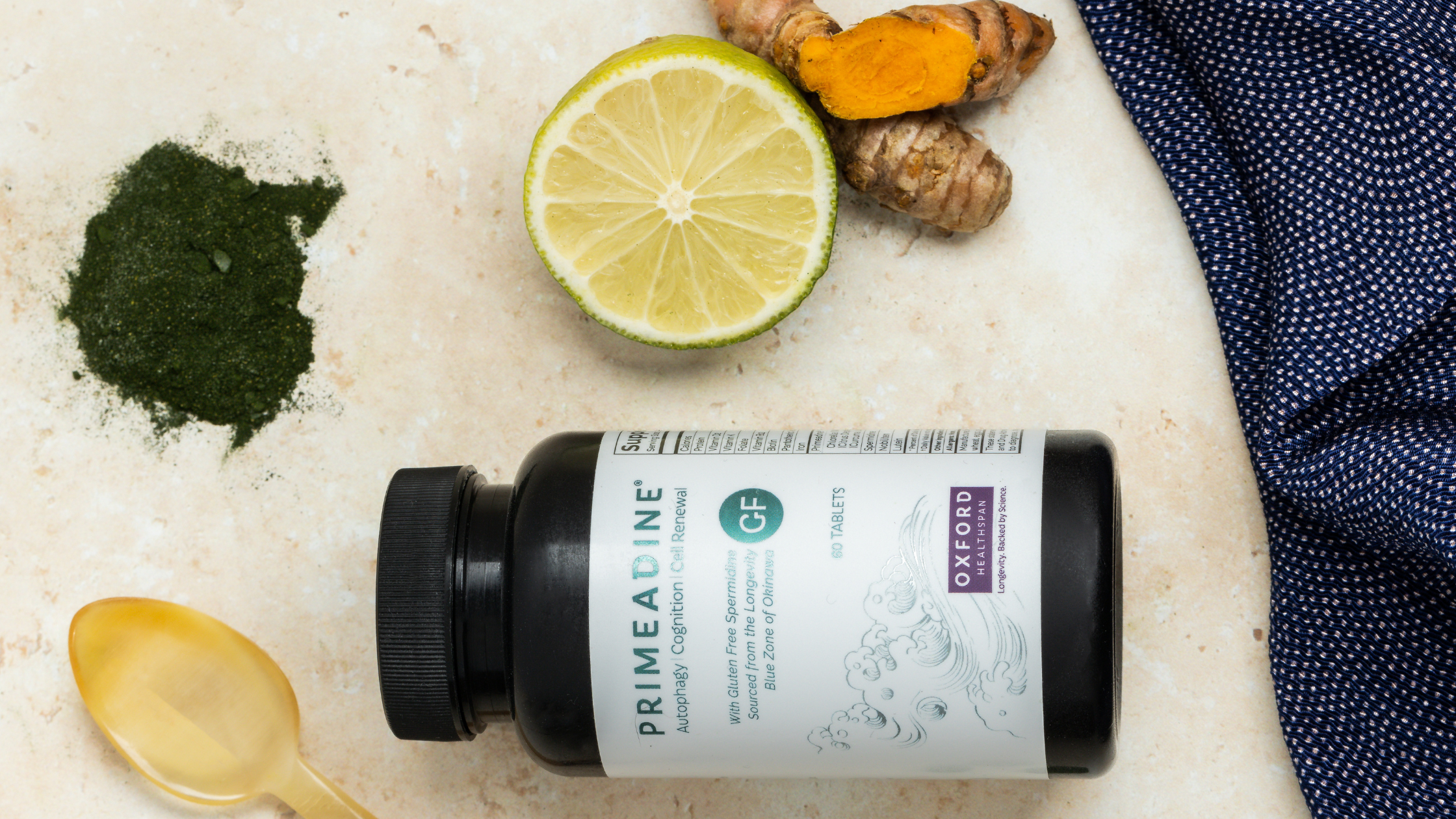
Primeadine GF Longevity Shot Recipe
In honor of Grammy Week, we’re sharing one of our go-to daily resets: the Primeadine GF Longevity Shot. Bright, invigorating, and refreshing, designed to give a longevity-forward boost. As a Gramm...




